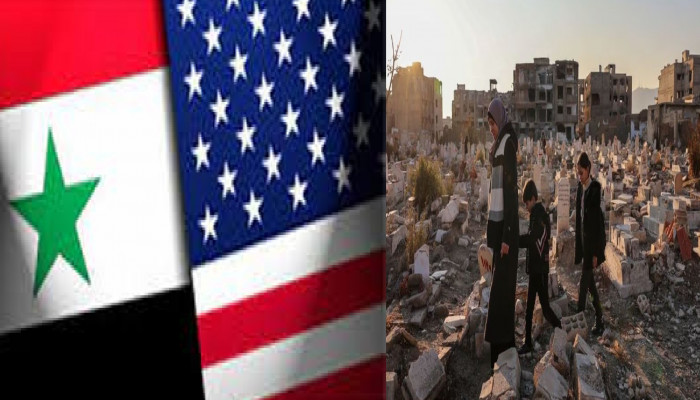US relaxes restrictions on Syria for humanitarian aid, sanctions to be in place
- In Reports
- 01:46 PM, Jan 07, 2025
- Myind Staff
On Monday, the US relaxed some restrictions on Syria's transitional government to allow humanitarian aid to enter, following the ousting of Syrian leader Bashar Assad by Islamist insurgents last month. The US Treasury issued a general license that lasts for six months, permitting certain transactions with the Syrian government, including some energy sales and related transactions.
This action shows a limited display of US support for the new transitional government, but it does not remove sanctions on the country that has been ravaged by more than ten years of war. According to a Treasury Department statement, the general license demonstrates America's determination to make sure its sanctions don't obstruct efforts to provide for fundamental human needs, such as the delivery of public services or humanitarian aid. "Treasury will continue to support humanitarian assistance and responsible governance in Syria," stated Wally Adeyemo, deputy secretary of the Treasury.
Since Assad was removed from power, the new leaders in Syria have stated that the country will be inclusive and welcoming to the world. The U.S. has slowly eased some of its sanctions since Assad left Syria for safety in Russia. In December, the Biden administration decided to cancel the $10 million reward it had offered for the capture of a Syrian rebel leader, whose forces played a key role in removing Assad last month. The declaration came after U.S. ambassador Barbara Leaf, who led the first U.S. diplomatic team into Syria since Assad's overthrow, met with Ahmad al-Sharaa, the leader of Hayat Tahrir al-Sham, or HTS, in Damascus. Ahmad al-Sharaa was formerly affiliated with al-Qaida. HTS has long been classified as a terrorist organisation by the US and the UN.
HTS led a swift rebellion that removed Assad from power on December 8, bringing an end to his family's long rule. From 2011 until Assad's fall, Syria's uprising and civil war resulted in around 500,000 deaths. On account of his violent response to protesters, most of the world cut off diplomatic ties with Assad and imposed sanctions on him, as well as on his Russian and Iranian allies. The majority of the sanctions imposed by the West were directed at Assad and his allies for their violent suppression of demonstrators and their production of the stimulant Captagon, which is similar to amphetamine and reportedly brought in billions of dollars when packages of the tiny white pills were smuggled across Syria's porous borders. Now that Assad is no longer in power, Syria's new leaders are counting on the international community to invest heavily in the nation to repair its damaged infrastructure and revive its economy.
Syria's infrastructure has been severely damaged and power outages are common across the country. Around 90% of the population is living in poverty, with about half of them uncertain about where their next meal will come from, as inflation rises. The call to lift sanctions has grown stronger in recent years, as aid organisations have been forced to reduce their programs due to donor fatigue. This is compounded by a massive earthquake in 2023, which devastated Syria and Turkey, killing over 59,000 people and destroying vital infrastructure. Despite the US allowing some humanitarian exceptions, the damage couldn't be repaired because of sanctions and strict enforcement of these rules. Ahead of the general license issuing, Qutaiba Idlbi, a research fellow at the Atlantic Council think tank who oversees work on Syria, stated: "There is a widespread understanding" among regional and international nations "that we need to avoid reinstating Syria into anarchy. The only way to move forward is to contribute constructively".







Comments